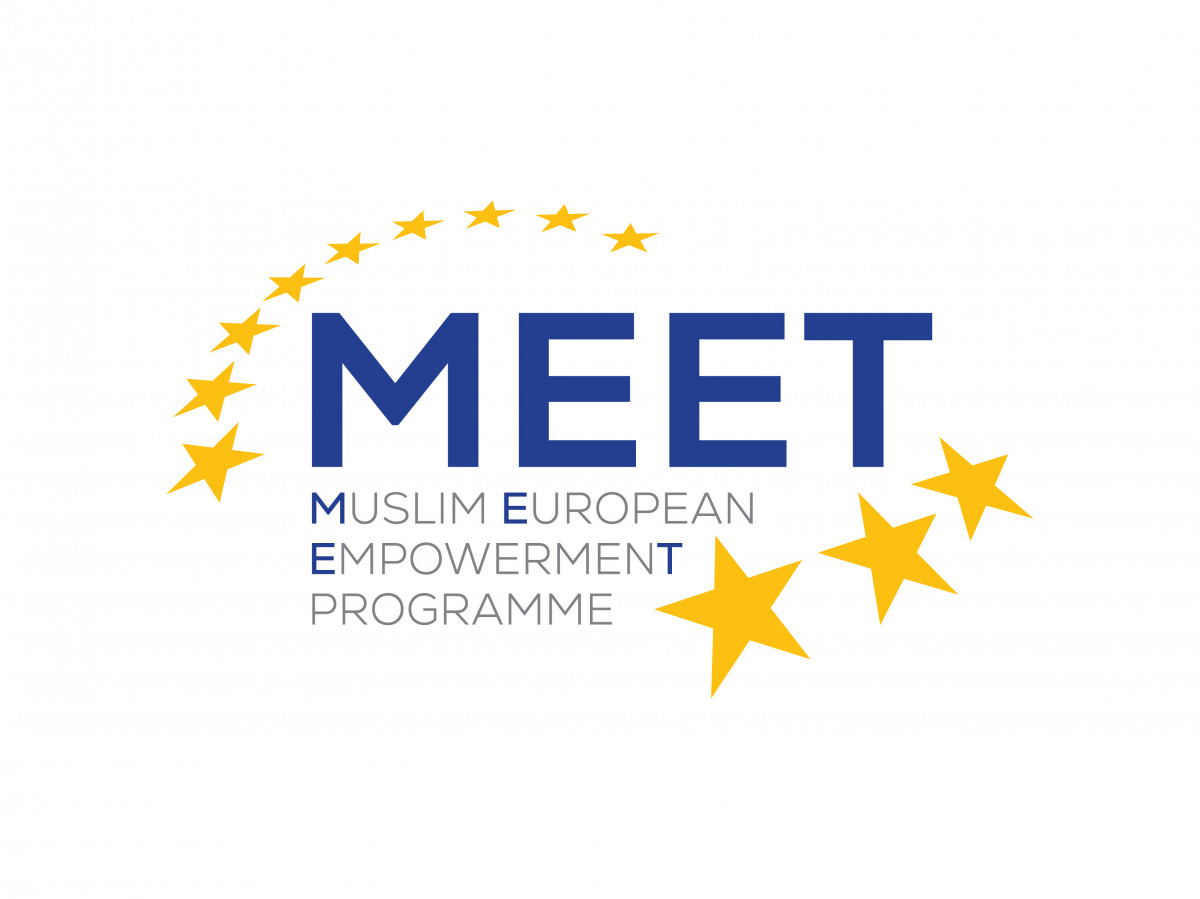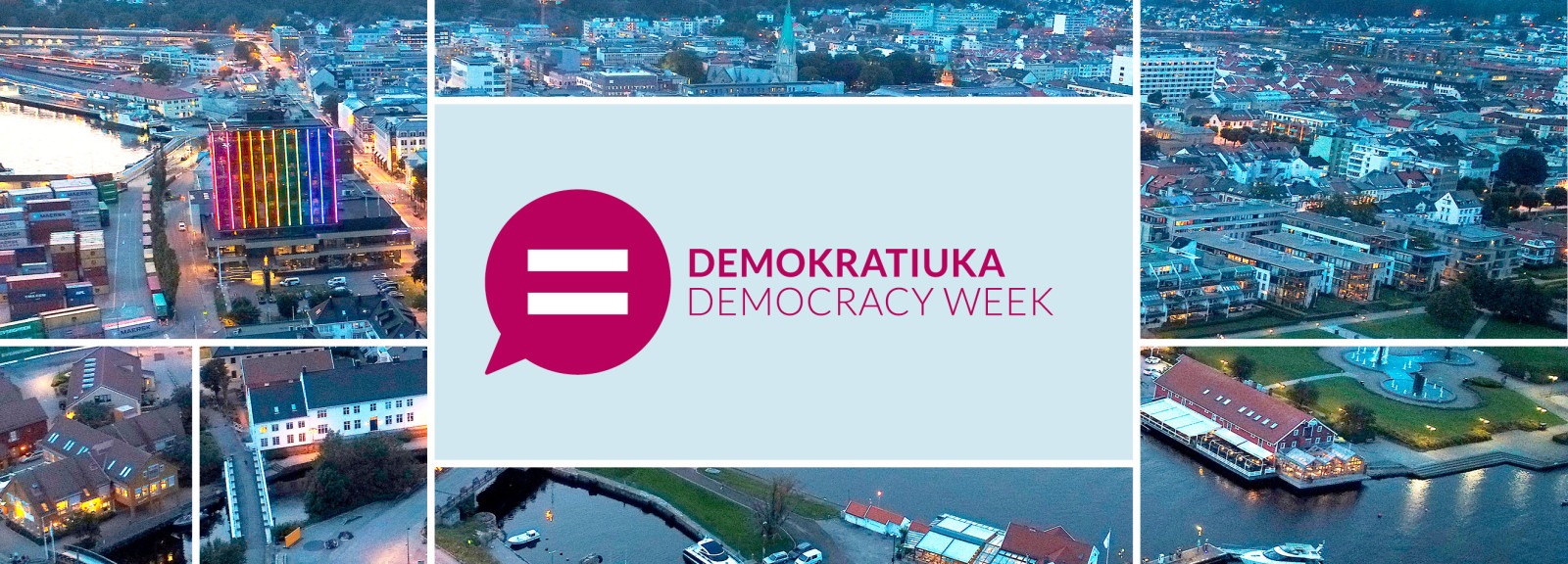Muslim European Engagement Programme - Addressing the Challenges of Islamophobia in the light of European Democratic Values

 Rullestoltilpasset WC
Rullestoltilpasset WC  Rullestoltilpasset lokale
Rullestoltilpasset lokaleThe theme of the 3rd European Conference on Democracy and Human Rights is freedom of expression. Many of the issues discussed in the conference directly affect Muslims living in Europe. A meeting on 6 May 2022 will unpack those themes specifically in the context of Muslim communities. Hosted by the University of Agder, the meeting will entail both understanding the problems Muslims face and sharing approaches to addressing those, thereby promoting lesson learning and wider implementation of effective interventions.
Key issues to be discussed in the event on 6 May include the impact of action plans already in place in Norway to combat discrimination and hatred towards Muslims; hate speech and online hate speech targeting Muslims; approaches to tackle discrimination and hate, notably the Nordic Safe Cities initiative; and challenges/interventions in a range of European countries. Panel discussions will support exchange of ideas and development of solutions.
An important feature of the 6 May gathering is that it allows Muslim leaders and activists to speak directly about their experiences, and to be actively involved in the search to identify solutions. This promotes not only ownership and sustainability of future activities, but also effectiveness – since approaches come from those ‘on the frontline’ of European Islamophobia. As such, they are in the best position to identify what will work and what won’t.
Participants for the 6 May event have been drawn from a large number of European countries: Norway and other Nordic countries, and further afield – France, Germany, Ireland and others.
It is hoped that the 6 May event will prove a catalyst for further such events and exchange of ideas across Europe, and for interventions to combat Islamophobia. Launch of MEET at the event will greatly support this process.
Registration
Participation is free, but please register to attend this event by completing the following form:
https://uia.pameldingssystem.no/meet
MEET website
For details of speakers please see MEET website:
https://meetprogramme.eu/
Shaykh Dr Umar al-Qadri is a leading Irish Muslim religious and social thinker and commentator. A qualified theologian and jurist, he works for cohesion, integration and a fairer society from his positions as Chairperson of the Irish Muslim Peace & Integration Council and Chief Imam at the Islamic Centre of Ireland. Born in Pakistan and raised in the Netherlands, Dr Al-Qadri has made Ireland his home for more than two decades. He promotes a European Muslim identity, working through his roles as a board member of EULEMA (European Leaders Majlis), European Muslim Forum and as a founding member of MJLC (Muslim-Jewish Leadership Council) to ensure that minority communities are considered in the formulation of policy and strategy at both EU and member state level. Dr Al-Qadri has worked on several projects tackling Islamophobia and anti-Muslim sentiments, while being a long-term critic of extremism and radicalization and unequivocally condemning Islamist violence. He makes regular contributions in the Irish print and broadcast media, and has spoken at various eminent platforms, including the European Parliament.
Dr Amjad Mohamed Saleem is a political scientist with extensive knowledge of peace building, humanitarian affairs and development work and has worked for different organisations on these issues. He has a particular interest in interfaith engagement and a focus on South Asia. Amjad sits on the Leadership Council of the Joint Learning Initiative for Faith and Communities, is a member of the Board for 'People Beyond Borders' and 'Eduspots', and is an advisor to the Centre for Humanitarian Diplomacy, Sarajevo. He is an alumni of the International Visitors Leadership Program, the Geneva Centre for Security Policy and the Concordia Forum. He is a Roxbourg Fellow, a senior fellow of the Global Peace Institute and a Hive Global Leaders Fellow. He has published in a number of journals, chapters in several books and a book in 2008, Lessons from Aceh. Amjad has an M.Eng. from Imperial College, London, an MBA from U21 Global Singapore and a PhD from Exeter University.
Amanda Figueras has worked for more than a decade on the frontline of journalism (El Mundo) and nowadays combines content creation with her work for interfaith and intercultural dialogue. She is a KAICIID 2020-2021 fellow and a former UNAOC fellow, a programme for which she was contracted as a local organizer in 2018. Amanda works as project manager at Foro Abraham (Spain), and she is an anti-Islamophobia activist. In 2018, Amanda published her book, Por qué el islam: mi vida como mujer, europea y musulmana (Why Islam: My Life as a Woman, European and Muslim).
Merilii Mykkänen has been a member of the Equality Commission of the CORE Forum (The National Forum for Cooperation of Religions in Finland) since 2021. She has been working for several years on equality-related issues in Finland. Currently, she is a grant-funded doctoral researcher at the University of Helsinki, Faculty of Law. Her dissertation examines discrimination and the actualization of religious freedom of Muslims and Jewish people in Finland. She also serves as the vice president of the Finnish Muslim Forum, a non-profit cooperative body and expert organization aiming to increase the communality and cohesion of Finland.
Dr Alioune Bah is linked to the research center in German and contemporary philosophy of the University of the Strasbourg (France). He teaches political philosophy in University of Conakry Guinea). He wrote ‘The philosophical and theological reception of Islam in Europe in the Moderne period’ (2014), ‘The Our Father and Fatiha: two texts, one prayer’ (2015), ‘For Guineans: history, democracy and development’ (2020), and many articles focused on promoting peace and harmony in societies with religious, cultural and ethnic differences. Dr Bah has a PhD in philosophy.
Džemal Šibljaković is currently the head of the social department of the Islamic Religious Authority in Austria. After studying religious education (BA) as well as social work (MA), he worked as the first full time Muslim prison chaplain for over seven years. In addition, he has worked in various settings with young people and young adults (Men's Counseling Association, Association for the Prevention of Violence and Extremism - Turn), where he dealt specifically with toxic images of masculinity and anti-democratic attitudes.
Abidah Ashraf is Section Chief physician of Emergency Psychiatry and is studying for a diploma course in criminology at Copenhagen University. She has been teaching basic psychiatry to physiotherapists, nurses, medical students (in a clinical setting) for many years, and lately also to physicians and psychologists. In addition, she is creative head and teacher (at times teaching assistant) at IslamAkademiet (a virtual Islamic online learning platform). She is also an Islamic psychotherapist, providing services through her firm ‘Afiyah. She is a board member of two organizations in Denmark, “Tro I harmoni” and “Muslimernes Fællesråd (MFR).
Mabrouka Rayachi has worked for 20 years in Viennese schools as a teacher of Islam, and partly as a native Arabic language teacher. She graduated from the elite Bourguiba School in Tunis with a Master’s degree in English and German, and was then awarded a scholarship to study religious pedagogy in Vienna. She is currently working towards a PhD in Islamic religious education.
As a migrant, as a Muslim mother of three children born and raised in Austria, and as an educator, Mabrouka is constantly grappling with the problems of integrating children and young people of Muslim parents into the majority society of Austria. She feels it is important to convey to children and young people that there is no contradiction between being a Muslim and being an Austrian.
In 2017/18 she organized a series of training seminars called "Islam in the Classroom" for principals in different regions of Lower Austria. In these she tried to shed light on Muslim students, address the challenges in schools and develop solutions together. Mabrouka also co-authored the Curriculum for Islamic Religious Education in Secondary Schools, and is a member of many organizations dealing with inclusion and interreligious dialogue.
Naveed Baig is a PhD Fellow at the University of Oslo. His research focuses on Muslim pastoral care and health. He has also taught at the University of Copenhagen and the University of Southern Denmark. For the past 15 years Naveed has held the position of chaplain at Rigshospitalet (one of the largest hospitals in Denmark), and in addition is serving as a volunteer imam at the Danish Islamic Centre in Copenhagen. He has participated in the Danish public debate on Islam and Muslims for many years, and in 2021 co-published The Danish-Muslim Manifesto, a project that aims to discuss key issues on being Muslim in Denmark and Europe.
Abdassamad El Yazidi is General Secretary of the Central Council of Muslims in Germany, a position he has held since May 2016. He heads the community of the Moad ben Jabal Mosque in Pfungstadt, Germany. Mr. El Yazidi is actively involved in the structural reform of the Central Council of Muslims in Germany and is dedicated to interreligious dialogue. He organized a trip of Christians, Jews and Muslims to Morocco in 2015 and coordinates the ‘Intercultural qualification of Imams’ project of the Goethe Institute.
Previously, Mr. El Yazidi founded the first state association of the Central Council of Muslims in Germany in Hesse in 2014 and served as its chairman. From 2010 to 2013, he was chairman of the German Muslim Association in the Rhine Main Region. Mr. El Yazidi holds a management role at a global logistics company at Frankfurt Airport. He was born in the town of Langen in Hesse, and grew up in Germany, with a five-year stint in Morocco to study Islam and the Arabic language.
Pia Katri is a social counsellor in the City of Helsinki, and an activist in the Muslim community interested in peacebuilding and interfaith dialogue. She seeks to bring about structural change to promote inclusion of minorities and combat discrimination.
Pia is the current President of the CORE Forum, which brings together organizations representing a large number of religions and denominations/groups within each. She is also Vice-Chairperson of the Islamic Council of Finland, General Secretary of the Finnish Muslim Forum, CEO of the Oasis Central Foundation and a board member of the European initiative, Religions for Peace ENIB.
Katri Kuusikallio is Executive Director of The National Forum for Cooperation of Religions in Finland (CORE Forum). CORE Forum is part of the international Religions for Peace network. CORE member organizations represent Judaism, Christianity, Islam, Buddhism, Hinduism and Latter-Day-Saints, including a large variety of denominations and groups for each.
CORE Forum has a number of thematic commissions, e.g. international affairs, communications, religious education in schools. Katri is CORE Forum representative on two advisory boards of the Ministry of Justice: equality cases and ethnic relations.
Katri has a Masters degree in Theology from Helsinki University. She has worked as a Lutheran priest, including in Tanzania from 2013-2016. She also serves as a member of the city council and city board in her hometown of Järvenpää.
Del dette arrangementet:
Publisert: 25. april 2022 10:02
Oppdatert: 2. mai 2022 9:38




